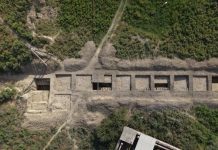URUMQI: Despite the nighttime temperatures plunging to minus 20 degrees Celsius, residents in Wushi County, Aksu Prefecture, in northwest China’s Xinjiang Uygur Autonomous Region, find comfort and security following the 7.1-magnitude earthquake that struck the area on Jan. 23.
In Karasu Village, Wushi, one of the nearest villages to the quake’s epicenter, a resettlement site boasts orderly rows of tents, providing villagers with ample daily necessities and essential supplies. Wu Hui, who oversees the site, said that with over 60 tents in place, this resettlement site is fully equipped to cater to the living requirements of the relocated villagers, ensuring a smooth daily operation.
In his packed agenda, Wu manages material dispatch, coordinates personnel, and addresses the challenges faced by those affected, ensuring a considerate and efficient response.
Seated around a stove fire in a tent, Kadirya Kurban enjoyed the warmth and company of her family and relatives. The tent had a circle of collapsible beds, cozy blankets, and well-lit lamps, shielding them from the chilly darkness of the night.
“We were terrified when the earthquake happened, but now we feel safe and sound because so many people are helping us,” said the 15-year-old who moved into the tent on the day of the earthquake with her family. According to the China Earthquake Networks Center, there have been over 4,200 aftershocks recorded, with seven aftershocks registering above a magnitude of 5.0, as of 8 a.m. Friday. –Agencies






